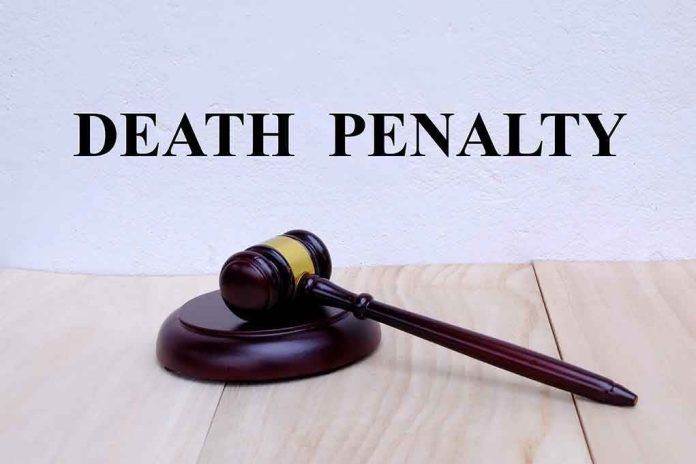
The Department of Justice’s pursuit of the death penalty and hate crime charges against the accused Jewish Museum murderer exposes the grave threat of antisemitic violence—and signals a rare, high-stakes test for how the U.S. justice system responds to attacks targeting American allies and constitutional values.
Story Snapshot
- The DOJ seeks the death penalty and hate crime charges against Elias Rodriguez for murdering two Israeli embassy staffers outside the Capital Jewish Museum in Washington, D.C.
- The attack comes amid a documented rise in antisemitic incidents in the U.S. following the Gaza conflict, intensifying security concerns at Jewish and diplomatic institutions.
- Rodriguez allegedly acted on pro-Palestinian motives and antisemitic beliefs, as evidenced by statements and social media posts.
- The case’s prosecution may set a legal precedent for hate crime cases—especially those involving foreign diplomats on American soil.
DOJ Seeks Death Penalty in Politically Charged Museum Attack
On May 21, 2025, the nation was shocked as Israeli embassy staffers Yaron Lischinsky and Sarah Milgrim were gunned down outside the Capital Jewish Museum in Washington, D.C., following a community event aimed at fostering unity. The immediate apprehension of suspect Elias Rodriguez, who had traveled from Chicago, placed a spotlight on both the growing threat of targeted violence against Jewish institutions and the U.S. government’s resolve to address hate-motivated crimes with the full weight of the law. The Department of Justice’s announcement, just months after the attack, that it will seek the death penalty and federal hate crime charges underscores the gravity of the situation and the rare nature of such prosecutions in America.
The attack was not an isolated incident but part of a disturbing trend that has escalated since the 2024–2025 Gaza conflict. Security experts and Jewish community leaders have sounded the alarm over the rise in antisemitic acts nationwide, with museums, synagogues, and diplomatic events increasingly under threat. The Capital Jewish Museum itself had recently bolstered security, anticipating potential risks given its prominent role and new exhibits that drew both community support and controversy. The DOJ’s decision to pursue the most severe penalties reflects mounting pressure to deter future attacks and reassure both American and allied communities that such violence will not be tolerated.
Motivations, Legal Precedent, and Community Impact
Evidence presented by federal prosecutors points to premeditated intent and hate-driven motivation. Rodriguez’s statements and digital footprint revealed explicit pro-Palestinian sentiment and antisemitic rhetoric, aligning the act with broader international tensions. Legal observers note the rarity of the DOJ seeking the death penalty for hate crimes, especially those targeting foreign diplomats. This case could set a new precedent for how politically charged, hate-motivated attacks are prosecuted, raising complex questions about the limits of federal authority and the responsibilities of law enforcement in protecting both American citizens and international partners on U.S. soil. Community leaders have responded by demanding increased security and emphasizing the need for vigilance in the face of growing ideological extremism.
The ramifications of this attack extend beyond the immediate tragedy. Jewish communities in Washington, D.C., and across the country have reported heightened anxiety, prompting institutions to accelerate security upgrades and seek additional federal support. The legal proceedings have also intensified public debate over the use of the death penalty and the prosecution of hate crimes, with some civil liberties advocates urging careful adherence to due process. Diplomatic relations are at stake as well, with Israel pressing for strong assurances regarding the safety of its personnel in the United States. The DOJ’s actions signal to both allies and adversaries that the U.S. will respond forcefully to attacks rooted in hatred and international conflict.
Broader Trends and the Conservative Perspective
This high-profile case unfolds as conservatives continue to warn of the dangers posed by unchecked violence, porous borders, and policies that fail to protect American values and institutions. The attack outside the Capital Jewish Museum is a stark reminder of the consequences when ideological extremism is allowed to fester and when law enforcement is not fully empowered to act. The Trump administration’s renewed focus on law and order, border security, and the defense of constitutional rights is widely seen by supporters as the necessary corrective to years of lax enforcement and politically driven agendas that left American communities vulnerable. For many, the DOJ’s decisive response is a welcome shift—one that places the safety of law-abiding citizens and America’s allies above political correctness and bureaucratic hesitation.
Yet the story also highlights the need for continued vigilance against threats to the constitutional principles that define the nation. Attacks motivated by hatred—whether rooted in international conflicts or domestic ideologies—represent a direct assault not only on individual victims but on the freedoms and security of every American. As this case moves through the courts, conservatives and constitutionalists will be watching closely, demanding that justice is served and that the lessons of this tragedy are not forgotten in the ongoing fight to defend American values and keep communities safe.
Sources:
Wikipedia, “2025 Capital Jewish Museum shooting,” last updated Aug. 6, 2025.
ABC News, “DOJ set to seek hate crime charges in killing of Israeli embassy staffers,” Aug. 6, 2025.





